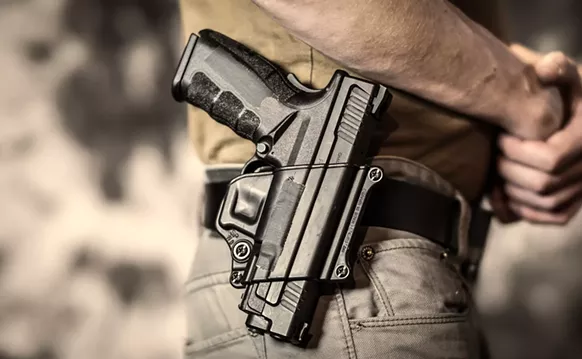Among the statistics about pain clinics: a new one opens here every three days; doctors in Broward alone dispense nearly 10 million oxycodone pills a year; more than half of the illegal prescription pills in the country come from South Florida.
But this weekend's debate between Democratic attorney general candidates in St. Petersburg gave us a new one. When the topic of pill mills came up, State Sen. Dave Aronberg of Greenacres said there are "more pain clinics in Broward County than McDonald's."
The comparison between the pill dispensaries and the fast food dispensaries was an interesting one. More important, though, we wondered if Aronberg was right.
After dozens of phone calls and hours of research, it turns out that
finding the exact number of pill mills in Broward is impossible. First, it depends on your definition of a "pill mill." The pain management clinics in South Florida range from legitimate medical business targeting specific patients suffering chronic pain to junkie-friendly, low-rent operations. Second, a lot of these clinics open and shut down quickly, only to reopen at a new location. Third, and most important, there is little government regulation of the industry, no agency responsible for tracking the businesses.
So how many pain clinics are there?
"Too many to count," says Kimberly Maroe, a Broward County spokesperson. The county and the 31 municipalities in Broward have no way to track such a statistic. Though the clinics require an occupational license from both the county and the state, the license for a pill mill is the same as a doctor's office or pharmacy.
Mike Jachles, a representative of the Broward Sheriff's Office, which operates a task force that focuses on prescription pills, says the number is "at least 80," though that number doesn't take into account clinics in areas the BSO doesn't oversee. He also joked that to get an accurate number, he needed to "go count all the ads in New Times." In last week's issue, there were 49 ads promoting pain clinics with phone numbers in the 954 area code.
Last year, a grand jury investigation led by State Attorney Michael J. Satz began looking into the proliferation of pain clinics in South Florida. In the first six months of 2008, 18 of the 25 top oxycodone-dispensing doctors were in Broward County. In the last six months of that year, Broward doctors prescribed 6.5 million pills of the incredibly powerful opioid, according to a report from Satz's office. That's nearly three pills for every man, woman, and child in the county. That year, oxycodone-related deaths in Broward went up 23 percent. In 2009, all 50 of the top oxy-prescribing doctors were in Florida, with 33 of those in Broward alone.
At the beginning of 2007, there were four pain clinics in Broward, according to the state attorney's report. In 2008, there were 47. In May of 2009, the most recent count, the total was 115. Many estimates put the current number at around 150 clinics in Broward.
The number of McDonald's restaurants is a bit easier to find. A search of the yellow pages shows 71 McDonald's locations within the county limits. That means that not only was Dave Aronberg right, but Broward could have twice as many pain pill dispensaries as McNugget dispensaries. In fact, the county has more pain clinics than McDonald's and Walmarts (21) combined.
There are perhaps three times as many clinics as Starbucks (47).
There are about six times as many pain clinics as public parks in Broward (24).
There are more pill mills than public high schools (33) or middle schools (43), and probably more than public elementary schools (138).
Then there's this: In 2008, the Florida Medical Examiners Commission reported 3,750 deaths from fatal overdoses of prescription drugs (three times more than heroin, cocaine, marijuana, and all hallucinogens combined). Another 1,174 people died "prescription drug-related" deaths that year.
In time, perhaps the pain clinics in Broward will put up some sort of sign recognizing its addicted client base. It could say something along the lines of "MILLIONS AND MILLIONS SERVED."












